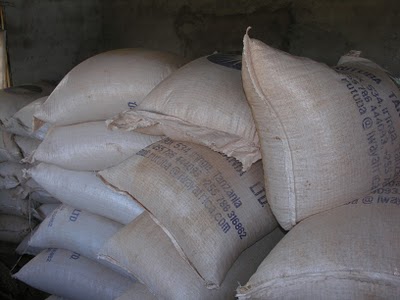
THE GRAIN Millers’ Association of Zimbabwe (GMAZ) is lobbying the government to ban the importation of mealie meal to protect local millers. GAMMA MUDARIKIRI OWN CORRESPONDENT
According to a position paper submitted last Friday to the Agriculture and Mechanisation ministry seen by Southern Eye Business, Matabeleland millers said they had the capacity to mill 60 000 metric tonnes of maize in a month against consumption of 48 000 metric tonnes.
GMAZ said the government had initially agreed to ban mealie meal imports last year, but had been reluctant to enforce the ban.
“An agreed position as at December 18 2013 with the Agriculture ministry under the import and export department was reached that there was not going to be any import permits on mealie meal as the milling industry had demonstrated capacity to import grain and value add,” part of the position paper reads.
“We note with concern that there have been some import permits issued against the agreed position.”
GMAZ said the issuing of import licences was pushing local millers out business.
“In the spirit of ensuring food security to the nation and the sustainable development of the industry, import permits for mealie meal should be issued for agreed designated areas after consultations between the imports and export committee and the millers,” the association said.
GMAZ proposed that mealie meal found in undesignated areas should be forfeited to the government and the abused permits withdrawn.
- Chamisa under fire over US$120K donation
- Mavhunga puts DeMbare into Chibuku quarterfinals
- Pension funds bet on Cabora Bassa oilfields
- Councils defy govt fire tender directive
Keep Reading
Agriculture and Mechanisation deputy minister David Murapira told a food summit in Bulawayo last week that the government was considering a total ban on maize imports by May next year.
He said millers should work on contracting farmers to produce maize they require rather than importing grain. However, the Commercial Farmers’ Union recently predicted that the country would this year record a poor farming season than in 2013, citing shoddy preparations.
The country last year experienced a serious maize deficit, forcing it to import grain.










